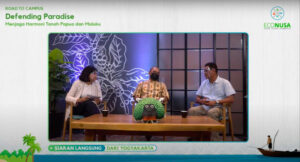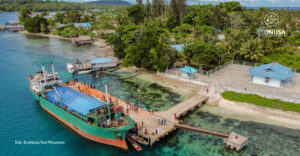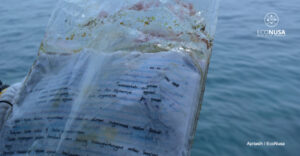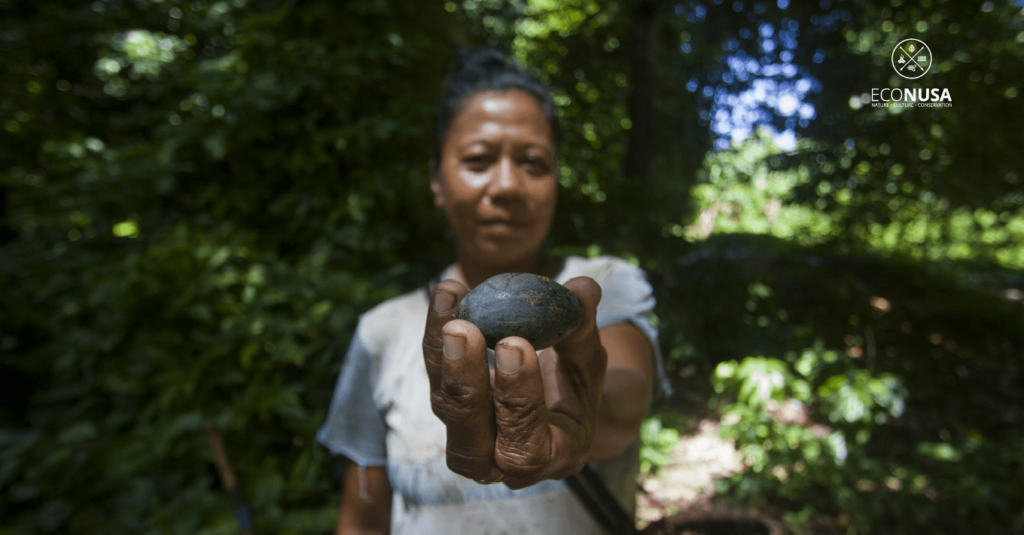
Maluku Island has long been known as the producer of spices such as clove and nutmeg. It is no wonder that the Europeans sailed to Maluku centuries ago to get spices directly from the sources. However, the island does not only become the source of spice, Maluku is also known as the producer of pili nut (kenari). Pili nut, a similar type of walnut, grows well in Banda and Ambon Islands in Maluku Province, and Makian Island in North Maluku.
In Banda Island, pili nut trees grow bigger than banyan tree and higher than coconut. The trees have existed since the colonial era. “Pili nut grow wild here, and they are hundred years of age,” said Ali Yusuf, a youngster from Lonthoir Village in Banda Sub-district, Central Maluku Regency, Monday, 27 June 2022.
The immense characteristic has made pili nut a shade tree, including nutmeg true. Banda Island is surrounded by immense sea. The giant pili nut tree could prevent the nutmeg tree from sea evaporation. Nutmeg fruit will fall down prior to harvest time due to sea evaporation.
Read Also: Tale of Nutmeg Part 2: Customary Sasi and Money Tree in Kaimana
As to Ali, for Banda people pili nut is one of the sources of livelihood in addition to nutmeg and fish. But the price is not as high as nutmeg. One kilogram of nutmeg costs Rp100-200 thousands. The price could double with the nutmeg flower (fuli). Meanwhile, pili nut costs Rp50-100 thousand per kilogram.
However, the community could hardly get nutmeg and fish on daily basis. Nutmeg is seasonal fruit with 3 crops a year. People could not go to the sea when the strong wind season comes. Meanwhile, pili nut always exists every day. The fruits usually fall by walor bird and paniki (black bat). “Without pili nut, people will lose their livelihood,” said the alumnus of Kewang Muda 2 activity held by EcoNusa and Moluccas Coastal Care (MCC) here.
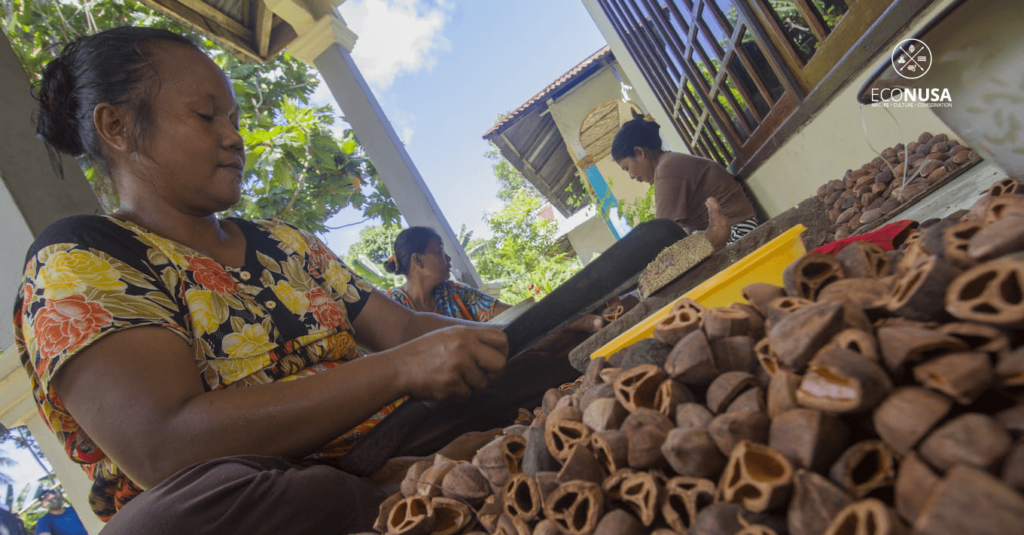
The most interesting of Banda Island is that the locals please anyone to take the fallen pili nut on the ground. They may pick pili nut even from the other’s property. They understand that pili nut has grown up long before they were born, so they did not plant or nurture them.
Read Also: Traditional Boat and Biak Tribe Sailing Pattern
The rules here are different from nutmeg with the owner as the only eligible one to pick the fruit. Anyone picking nutmeg that does not belong to them might carry a sanction. “Nutmeg is planted, so stealing will be fined,” said Ali who is a temporary teacher at a junior high school in Central Maluku.
From the pili nut, Banda people could meet their daily need and even afford the school tuition up to university level. Ali’s parents, for instance, could put Ali to Hatta-Sjahrir Fisheries College, Central Maluku. The neighbors could also take their children to the universities. “Their children could become a bachelor due to their parents’ attempt to earn income from pili nut,” said Ali.
In addition to Banda, in Makian Island (pronounced as Makean), North Maluku, is also known as the center for pili nut which is estimated to have existed since the colonial era. The large number of pili nut trees in the island has made Makian known as the island of pili nut. Some people make the pili nut as the source of livelihood due its promising prospects. From pili nut they could suffice their daily living cost, school tuition, and even afford the hajj pilgrimage.
Read Also: Retracting Egek, Looking at Moi Tribe’s Natural Deposit
The rules in Makian is similar to that of in Banda. The community agrees that anyone could take the fallen pili nut on the ground despite the somebody else’s property. Unlike Banda, the people in Makian agrees that it is only the owner who can pick the hanging fruits. “Anyone can take the fallen pili nut on the ground, including the widow or the poor one so that they could get the blessing of pili nut,” said Usman, one of the pili nut farmers in Suma Village, Makian Island.
Both in Banda and Makian, pili nut could serve as the cooking ingredient. The people can utilize them as the cake material such as pili nut halua, and pili nut-based nougat. Pili nut is sold to Surabaya before then delivered to other regions or overseas.
Editor: Leo Wahyudi


